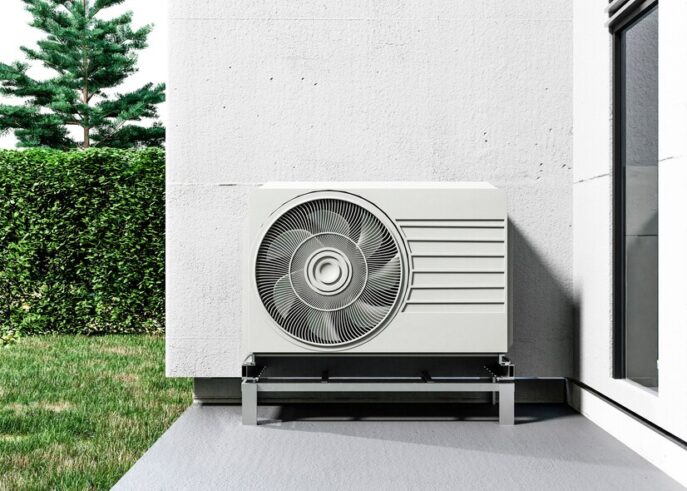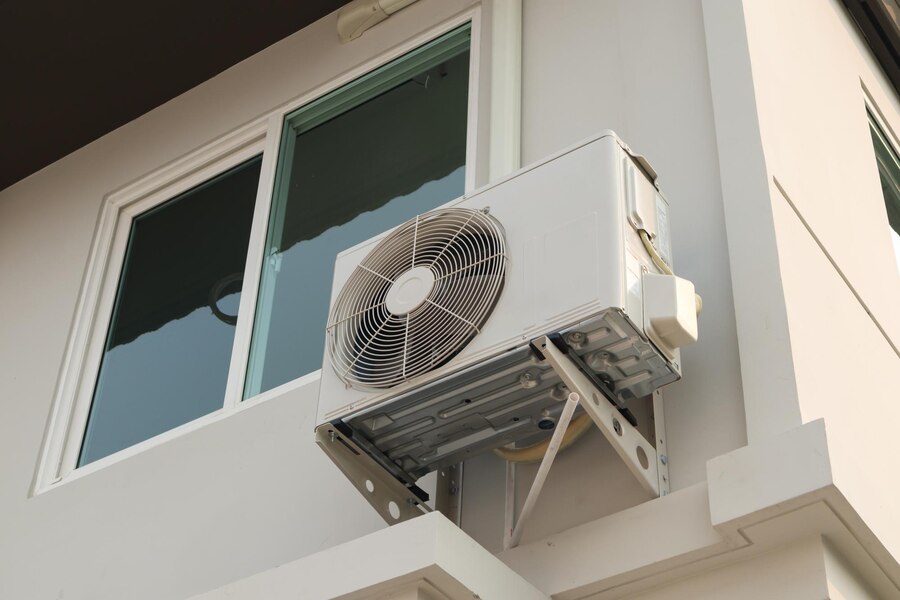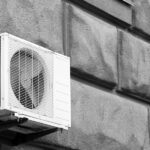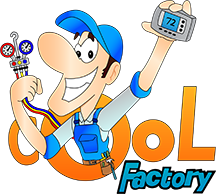
The Benefits of Energy-Efficient HVAC Systems
The Benefits of Energy-Efficient HVAC Systems
In today’s world, where sustainability and efficiency are paramount concerns, the significance of energy-efficient HVAC (Heating, Ventilation, and Air Conditioning) systems cannot be overstated. Beyond merely regulating indoor temperatures, these systems play a pivotal role in reducing energy consumption and environmental impact. From cutting down utility bills to fostering healthier indoor environments, the advantages of opting for energy-efficient HVAC solutions are manifold. In this article, we delve into the myriad benefits that these systems offer, shedding light on their importance in modern-day living.
Understanding Energy-Efficient HVAC Systems
Energy-efficient HVAC systems represent a paradigm shift in the realm of indoor climate control, embodying a commitment to sustainability and efficiency. Employing cutting-edge technologies like variable-speed motors, programmable thermostats, and zoning systems, these systems operate intelligently, adapting to fluctuating environmental conditions and occupancy patterns.
By optimizing energy usage and minimizing wastage, they not only reduce utility bills but also mitigate environmental impact, aligning with the global push towards eco-conscious living. For homeowners and businesses alike, comprehending the intricacies of energy-efficient HVAC systems is paramount, empowering them to make informed choices that promote both comfort and environmental stewardship.
The Environmental Impact of Conventional HVAC Systems
Conventional HVAC systems, ubiquitous in residential and commercial buildings, are integral to maintaining comfortable indoor environments. However, their widespread use comes with significant environmental consequences. Here are five key environmental impacts associated with conventional HVAC systems:
- Energy Consumption: Conventional HVAC systems are notorious for their high energy consumption, contributing to increased demand for fossil fuels and higher carbon emissions, exacerbating climate change.
- Refrigerant Leakage: Many conventional HVAC systems utilize refrigerants that are potent greenhouse gasses. Leakage of these refrigerants during operation or maintenance poses a significant threat to the environment, contributing to ozone depletion and global warming.
- Air Pollution: The combustion of fossil fuels to power traditional heating systems releases pollutants such as carbon monoxide, nitrogen oxides, and particulate matter into the atmosphere, compromising air quality and human health.
- Resource Depletion: The manufacturing and disposal of conventional HVAC systems require significant amounts of raw materials and energy, contributing to resource depletion and environmental degradation.
- Waste Generation: At the end of their lifecycle, conventional HVAC systems contribute to electronic waste (e-waste) streams, further burdening landfills and posing environmental hazards due to improper disposal practices.
How Energy-Efficient HVAC Systems Lower Utility Bills
Energy-efficient HVAC systems employ advanced features such as high-efficiency compressors, enhanced insulation, and smart controls to minimize energy consumption. By optimizing performance and reducing wasted energy, these systems significantly lower utility bills compared to conventional counterparts.
They operate more efficiently, requiring less energy to maintain desired indoor temperatures, leading to substantial cost savings over time. Investing in energy-efficient HVAC systems not only benefits the environment but also provides financial relief to homeowners and businesses through reduced energy expenditures, making them a wise long-term investment in economic terms.
Enhanced Comfort: The Difference in Indoor Environments
Energy-efficient HVAC systems revolutionize indoor comfort by ensuring consistent temperatures and humidity levels across spaces. Unlike conventional counterparts prone to fluctuations, these models create a harmonious environment, minimizing hot or cold spots. By evenly distributing conditioned air, occupants enjoy enhanced comfort and satisfaction.
Moreover, superior air quality and reduced noise levels amplify the pleasantness of indoor settings, nurturing productivity and well-being. The amalgamation of balanced temperatures, purified air, and diminished noise underscores the transformative impact of energy-efficient HVAC systems, elevating the standard of comfort and fostering a conducive atmosphere for living and working.
Healthier Living Spaces: Benefits of Improved Air Quality
Energy-efficient HVAC systems are instrumental in cultivating healthier living spaces by elevating indoor air quality. Equipped with advanced filtration mechanisms, these systems effectively trap dust, allergens, and pollutants, thereby enhancing respiratory health and diminishing the likelihood of airborne illnesses.
By circulating pristine air throughout the premises, energy-efficient HVAC systems foster a conducive environment for occupants, especially advantageous for individuals with allergies or respiratory conditions. Investing in enhanced air quality through energy-efficient HVAC solutions not only bolsters overall well-being but also enhances the quality of life for occupants, underscoring the significance of prioritizing indoor air quality in sustainable living practices.
Contributing to Environmental Sustainability
Energy-efficient HVAC systems play a pivotal role in advancing environmental sustainability objectives by curbing carbon emissions and curbing energy consumption. Through optimized energy utilization and the use of eco-friendly refrigerants, these systems contribute to climate change mitigation and resource conservation.
Opting for energy-efficient HVAC solutions not only supports global sustainability targets but also diminishes ecological footprints, fostering a substantial positive impact on the environment. Embracing responsible energy management practices and integrating green technologies empowers individuals and businesses to actively contribute to a greener future while reaping the rewards of efficient heating and cooling solutions.
Government Incentives and Rebates for Energy-Efficient Upgrades
Governments worldwide recognize the critical role of energy efficiency in combating climate change and reducing carbon emissions. To incentivize the adoption of energy-efficient HVAC systems, various government programs offer a range of incentives and rebates. These incentives may include tax credits, grants, or rebates provided by local, state, or federal authorities.
By offsetting the initial costs of upgrading to energy-efficient equipment, these incentives make sustainable HVAC solutions more accessible and affordable for homeowners and businesses alike. Additionally, some government programs offer financial assistance for energy audits or efficiency improvements, further encouraging the transition to eco-friendly HVAC systems and fostering widespread adoption of energy-efficient technologies.

Long-Term Savings: Calculating the Return on Investment
Energy-efficient HVAC systems offer significant long-term savings through reduced energy consumption and lower operating costs. While the initial investment may be higher compared to conventional systems, the long-term financial benefits outweigh the upfront expenses.
Calculating the return on investment involves considering factors such as energy savings, reduced maintenance costs, and potential incentives or rebates. By analyzing the lifecycle costs and projected savings over time, homeowners and businesses can make informed decisions about investing in energy-efficient HVAC systems, ultimately enjoying substantial financial returns and increased property value.
Advanced Technology: Innovations in Energy-Efficient HVAC Systems
Energy-efficient HVAC systems leverage advanced technologies to optimize performance and energy efficiency. Innovations such as variable-speed compressors, smart thermostats, and predictive analytics enhance system control and efficiency, adapting to changing environmental conditions and user preferences.
Additionally, advancements in materials and design improve insulation and airflow management, further optimizing energy usage and reducing waste. By incorporating cutting-edge technology, energy-efficient HVAC systems deliver superior performance, comfort, and energy savings, setting new standards for sustainability and innovation in the heating, ventilation, and air conditioning industry.
Tips for Selecting and Maintaining Energy-Efficient HVAC Systems
Selecting and maintaining energy-efficient HVAC systems requires careful consideration and proactive upkeep to ensure optimal performance and longevity. Here are some essential tips to guide you through the process:
- Prioritize Energy Efficiency: Prioritizing energy efficiency involves selecting HVAC systems with high SEER and AFUE ratings, which measure the efficiency of air conditioners and furnaces respectively, ensuring maximum energy savings and reduced utility costs.
- Invest in Energy-Saving Features: Investing in energy-saving features such as programmable thermostats, variable-speed motors, and zoning capabilities allows for customized energy usage tailored to specific comfort requirements, optimizing efficiency and reducing energy waste.
- Ensure Proper Sizing: Properly sizing HVAC systems according to the dimensions of your space prevents inefficiencies and unnecessary energy consumption, ensuring optimal performance and comfort while minimizing operating costs.
- Schedule Regular Maintenance: Regular maintenance, including tasks like filter replacements, duct cleaning, and system inspections, is essential for preserving the efficiency and longevity of HVAC systems, maximizing performance and minimizing energy waste over time.
- Seal Air Leaks: Sealing air leaks in ductwork, windows, and doors prevents conditioned air from escaping, improving overall energy efficiency by minimizing heat loss or gain and reducing the workload on HVAC systems.
- Stay Informed and Updated: Staying informed about advancements in HVAC technology and industry best practices enables informed decision-making regarding system upgrades and maintenance, ensuring continued energy efficiency and cost savings in the long run.
Overcoming Common Misconceptions About Energy Efficiency
Despite the numerous benefits of energy-efficient HVAC systems, there are often misconceptions that hinder adoption and implementation. Common myths include beliefs that energy-efficient systems are prohibitively expensive, complex to install, or offer minimal performance benefits.
By addressing these misconceptions and providing accurate information about the affordability, simplicity, and effectiveness of energy-efficient solutions, individuals and businesses can make informed decisions about upgrading their HVAC systems. Education and awareness play a crucial role in dispelling myths and promoting the adoption of energy-efficient technologies, ultimately leading to widespread acceptance and implementation.
Future Prospects: Trends and Developments in HVAC Technology
The future of HVAC technology is characterized by ongoing innovation and advancement, driven by the increasing demand for energy efficiency, sustainability, and comfort. Emerging trends include the integration of smart technology, artificial intelligence, and renewable energy sources into HVAC systems, allowing for more precise control, predictive maintenance, and energy optimization.
Additionally, developments in materials science and manufacturing techniques are leading to the creation of more efficient and eco-friendly HVAC components and systems. By staying abreast of these trends and developments, homeowners, businesses, and industry professionals can anticipate future challenges and opportunities in the evolving landscape of HVAC technology.
The benefits of energy-efficient HVAC systems are undeniable. From reducing energy consumption and lowering utility bills to promoting environmental sustainability and enhancing indoor comfort, these systems offer a myriad of advantages for homeowners and businesses alike. At Cool Factory, Inc in Sterling, VA, we specialize in providing top-notch energy-efficient HVAC solutions tailored to your needs.
Experience the difference with our expert installation and maintenance services. Contact us today at (703) 713-5113 to learn more about how you can enjoy the benefits of energy-efficient HVAC systems and take the first step towards a greener, more comfortable future.






